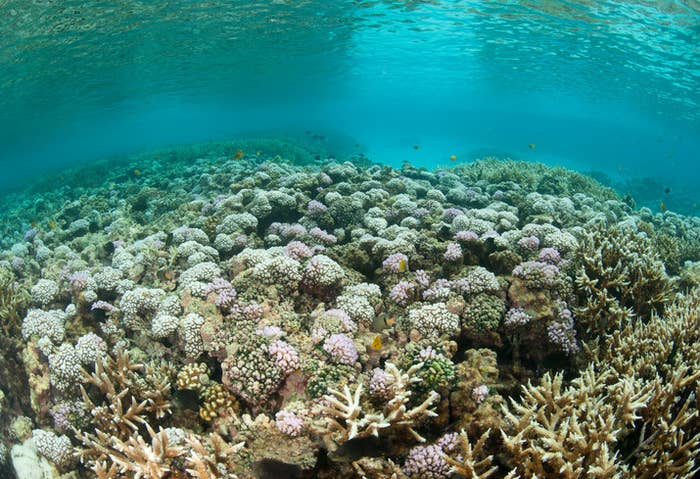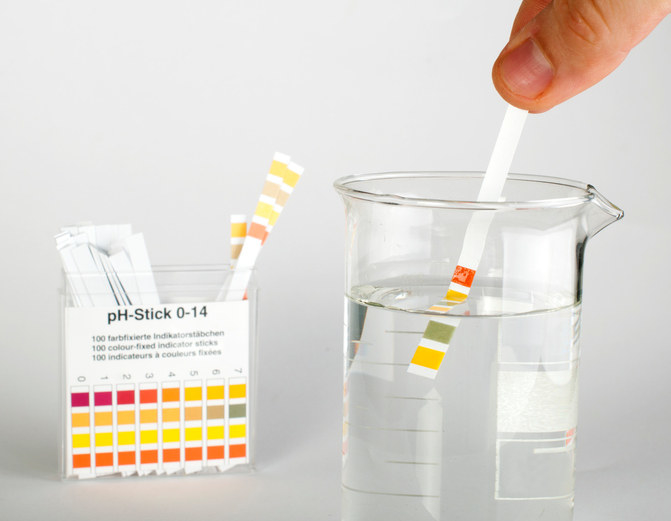So the concept of "ocean acidification" has been in the news lately.

The idea is that as the concentration of carbon dioxide in the atmosphere increases, more and more is absorbed by the surface of the oceans. When carbon dioxide dissolves in water, it forms carbonic acid, increasing the acidity of the oceans.
It's not good for a lot of coral reefs, which are largely made of calcium carbonate and dissolve easily in more acidic waters. It's also probably bad for other calcareous creatures, such as crabs, but might be good news for sea grasses and other marine plants.
Luckily, Roger Helmer, a UKIP MEP, is on hand to tell us all that it's nothing to worry about!
The ignorance! The oceans cannot be MORE acidic, because they are not acidic at all. Slightly alkaline. Do you know… https://t.co/2gcrkVdG6c
He argued the point with Bob Ward, the communications director of the London School of Economics' climate change research unit.
It provoked a bit of a response.
@ret_ward @RogerHelmerMEP my kids are not growing taller. They are de-shortening.
@RogerHelmerMEP The sea water cannot be MORE hot, because it is not hot at all. Slightly cold. Do you know nothing?
Helmer joins a noble tradition of prominent UKIP-ers telling experts what they're wrong about.
So, here's what's actually going on. "Acidity" and "alkalinity" are two ends of the same spectrum, measured by pH.
This person puts that a bit more succinctly:
@RogerHelmerMEP THEY'RE ON THE SAME FUCKING SCALE. THEY ARE NOT TWO INDEPENDENT CONCEPTS, YOU UTTER FUCKWIT.
"pH" is a measure of the concentration of hydrogen ions, H+, in a solution.
@RogerHelmerMEP Roger, this is key stage 3 chemistry. It's taught to 11 year olds.
A hydrogen ion is a hydrogen atom that has lost an electron, leaving it with a positive electrical charge. When a water molecule, H2O, splits, it forms a hydrogen ion and a hydroxide ion (HO-).
When there are more H+ ions than HO- ions, the solution is acidic; when there are more HO- ions, the solution is alkaline, or basic.
When they're balanced, as they are in pure distilled water, the solution is neutral. Acids have a pH of below 7; alkalis, above 7; neutral fluids, such as distilled water, have a pH of 7.
(We asked an actual chemistry PhD to confirm this, because it's been a long time since A-level chemistry.)
Sea water used to have a pH of 8.2; in the last 200 years or so, since the Industrial Revolution, it's fallen to 8.1. So it's slightly alkaline, but getting less so.

It looks like a small change, but pH is a logarithmic scale – every point on the scale represents a tenfold increase in the concentration of H+ ions, so pH 6 is 10 times more acidic than pH 7. That means the concentration of H+ ions has gone up by about 30%.
Enough of this science nonsense, though. Is Roger Helmer MEP right or not? Is "less alkaline" the same as "more acidic"?

Well, frankly, it's a boring question of definitions. Can a dry thing get wetter? Can a tall thing get shorter? Most people would say yes, but there's nothing stopping Roger Helmer MEP from saying no. We're straying out of chemistry and into linguistics, here.
As, to be fair, he acknowledges:
Thanks Tom. But I think if anything the argument is more about semantics than science. Definition of pH is not in d… https://t.co/5VXKLAp6fk
But for what it's worth, the US National Oceanic and Atmospheric Association and the American Chemical Society both disagree with him:

Nonetheless, Helmer is sticking to his guns:
Learn English, why don't you? If you say the oceans are "more acidic", you imply they were acidic to start with. Th… https://t.co/Wtf1Yz4rsk
Which is really rather admirable.
